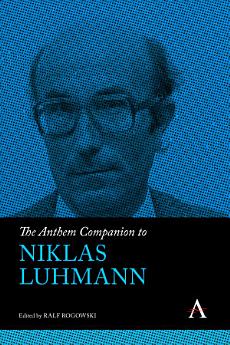The Anthem Companion to Niklas Luhmann
Über dieses E-Book
In “Epistemic Sociology: Luhmann’s Theory of Science and Knowledge,” Gert Verschraegen underscores the connection of science in society with other function systems such as the educational (coupled via curricula content in textbooks), the economy (coupled via patents), politics (coupled through research policy as well as policy advice), and the medical system (coupled through scientifically tested medicinal knowledge and operation practices). In “Luhmann’s Theory of Art,” Paul Buckermann examines how Luhmann’s functional method is key to understanding art and makes visible possibilities of order that otherwise remain invisible. In “Luhmann on Religion and Secularization,” Raf Vanderstraeten discusses, with reference to a host of examples, how the religious system contributed to the genesis of modern society, and how it was forced to adapt to the consequences of modern society’s functional differentiation.
In “Niklas Luhmann and Critical Systems Theory,” Kolja Möller and Jasmin Siri outline features of a critical systems theory and its potential for a critique of modern society. In “Niklas Luhmann and His Sceptical Notion of Culture,” Dirk Baecker outlines Luhmann’s reserved attitude towards the concept of culture. In “Luhmann, on Algorithms, in 1966,” Elena Esposito analyses an early text of Luhmann on Law and Automation in Public Administration. In “Niklas Luhmann Observed from a Luhmannian Perspective,” Klaus Dammann analyses Luhmann’s biography using Luhmannian concepts and in “Three Encounters with Niklas Luhmann,” Gunther Teubner narrates his academic and personal experiences with Luhmann.
Autoren-Profil
Ralf Rogowski is a professor of law at the University of Warwick. He is the author of Reflexive Labour Law in the World Society (2015), and co-author and editor of 11 book publications. He has applied Luhmann’s social system theory throughout his work with a particular focus on developing the theory of reflexive law.






